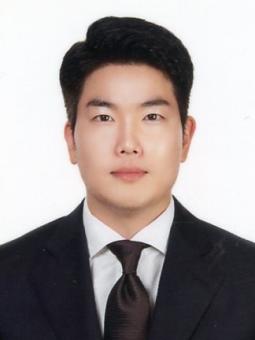Psychological support team formed for grieving families of plane disaster
입력 2025.01.01 (23:50)
읽어주기 기능은 크롬기반의
브라우저에서만 사용하실 수 있습니다.
[Anchor]
The recent disaster has caused severe psychological trauma responses among the bereaved families.
There are concerns that the entire community could fall into trauma due to feelings of loss and helplessness.
The government has formed a unified psychological support team to provide psychological counseling assistance.
O Jeong-hyun reports.
[Report]
Families anxiously waiting for news of their loved ones' identification at the airport for several days.
Both their bodies and minds are exhausted, but they have no time to take care of themselves.
[Family member of the Jeju Air plane disaster/voice altered: "My mouth feels so dry I can't even eat. They're still lying there in the cold, unable to move to a warm place yet. How can I eat?"]
The feeling of loss from losing a loved one brings an endless sense of helplessness and can lead to excessive self-blame.
[Family member of the Jeju Air plane disaster/voice altered: "I feel so powerless. I realize how selfish I am now, as practical concerns start to scare me. Even now, I tend to think only about myself."]
These are typical symptoms of post-traumatic stress disorder, PTSD.
Particularly, the nature of an air disaster makes it especially painful for families, as they often have to witness the distressing process of recovering remains.
[Shim Min-young/Director of the National Trauma Center: "(In aviation accidents) it is very difficult to recover the bodies intact. Families often imagine the worst possible scenarios, which causes immense pain and anguish."]
Nearly 90% of the victims of this disaster are residents of Gwangju and Jeonnam.
There are concerns that the entire community could fall into collective trauma since the victims are neighbors and acquaintances.
[Noh Yong-jun/Mourner, Muan County, Jeonnam: "There must be people from Muan-eup, and many from Gwangju and Jeolla-do nearby. Thinking about that is really heartbreaking."]
The government has formed a unified psychological support team and has begun providing psychological counseling assistance at four locations in Muan Airport.
Over the course of two days, more than 30 bereaved family members received counseling in the psychological support room set up at the airport.
This is KBS News O Jeong-hyun.
The recent disaster has caused severe psychological trauma responses among the bereaved families.
There are concerns that the entire community could fall into trauma due to feelings of loss and helplessness.
The government has formed a unified psychological support team to provide psychological counseling assistance.
O Jeong-hyun reports.
[Report]
Families anxiously waiting for news of their loved ones' identification at the airport for several days.
Both their bodies and minds are exhausted, but they have no time to take care of themselves.
[Family member of the Jeju Air plane disaster/voice altered: "My mouth feels so dry I can't even eat. They're still lying there in the cold, unable to move to a warm place yet. How can I eat?"]
The feeling of loss from losing a loved one brings an endless sense of helplessness and can lead to excessive self-blame.
[Family member of the Jeju Air plane disaster/voice altered: "I feel so powerless. I realize how selfish I am now, as practical concerns start to scare me. Even now, I tend to think only about myself."]
These are typical symptoms of post-traumatic stress disorder, PTSD.
Particularly, the nature of an air disaster makes it especially painful for families, as they often have to witness the distressing process of recovering remains.
[Shim Min-young/Director of the National Trauma Center: "(In aviation accidents) it is very difficult to recover the bodies intact. Families often imagine the worst possible scenarios, which causes immense pain and anguish."]
Nearly 90% of the victims of this disaster are residents of Gwangju and Jeonnam.
There are concerns that the entire community could fall into collective trauma since the victims are neighbors and acquaintances.
[Noh Yong-jun/Mourner, Muan County, Jeonnam: "There must be people from Muan-eup, and many from Gwangju and Jeolla-do nearby. Thinking about that is really heartbreaking."]
The government has formed a unified psychological support team and has begun providing psychological counseling assistance at four locations in Muan Airport.
Over the course of two days, more than 30 bereaved family members received counseling in the psychological support room set up at the airport.
This is KBS News O Jeong-hyun.
■ 제보하기
▷ 카카오톡 : 'KBS제보' 검색, 채널 추가
▷ 전화 : 02-781-1234, 4444
▷ 이메일 : kbs1234@kbs.co.kr
▷ 유튜브, 네이버, 카카오에서도 KBS뉴스를 구독해주세요!
- Psychological support team formed for grieving families of plane disaster
-
- 입력 2025-01-01 23:50:17

[Anchor]
The recent disaster has caused severe psychological trauma responses among the bereaved families.
There are concerns that the entire community could fall into trauma due to feelings of loss and helplessness.
The government has formed a unified psychological support team to provide psychological counseling assistance.
O Jeong-hyun reports.
[Report]
Families anxiously waiting for news of their loved ones' identification at the airport for several days.
Both their bodies and minds are exhausted, but they have no time to take care of themselves.
[Family member of the Jeju Air plane disaster/voice altered: "My mouth feels so dry I can't even eat. They're still lying there in the cold, unable to move to a warm place yet. How can I eat?"]
The feeling of loss from losing a loved one brings an endless sense of helplessness and can lead to excessive self-blame.
[Family member of the Jeju Air plane disaster/voice altered: "I feel so powerless. I realize how selfish I am now, as practical concerns start to scare me. Even now, I tend to think only about myself."]
These are typical symptoms of post-traumatic stress disorder, PTSD.
Particularly, the nature of an air disaster makes it especially painful for families, as they often have to witness the distressing process of recovering remains.
[Shim Min-young/Director of the National Trauma Center: "(In aviation accidents) it is very difficult to recover the bodies intact. Families often imagine the worst possible scenarios, which causes immense pain and anguish."]
Nearly 90% of the victims of this disaster are residents of Gwangju and Jeonnam.
There are concerns that the entire community could fall into collective trauma since the victims are neighbors and acquaintances.
[Noh Yong-jun/Mourner, Muan County, Jeonnam: "There must be people from Muan-eup, and many from Gwangju and Jeolla-do nearby. Thinking about that is really heartbreaking."]
The government has formed a unified psychological support team and has begun providing psychological counseling assistance at four locations in Muan Airport.
Over the course of two days, more than 30 bereaved family members received counseling in the psychological support room set up at the airport.
This is KBS News O Jeong-hyun.
The recent disaster has caused severe psychological trauma responses among the bereaved families.
There are concerns that the entire community could fall into trauma due to feelings of loss and helplessness.
The government has formed a unified psychological support team to provide psychological counseling assistance.
O Jeong-hyun reports.
[Report]
Families anxiously waiting for news of their loved ones' identification at the airport for several days.
Both their bodies and minds are exhausted, but they have no time to take care of themselves.
[Family member of the Jeju Air plane disaster/voice altered: "My mouth feels so dry I can't even eat. They're still lying there in the cold, unable to move to a warm place yet. How can I eat?"]
The feeling of loss from losing a loved one brings an endless sense of helplessness and can lead to excessive self-blame.
[Family member of the Jeju Air plane disaster/voice altered: "I feel so powerless. I realize how selfish I am now, as practical concerns start to scare me. Even now, I tend to think only about myself."]
These are typical symptoms of post-traumatic stress disorder, PTSD.
Particularly, the nature of an air disaster makes it especially painful for families, as they often have to witness the distressing process of recovering remains.
[Shim Min-young/Director of the National Trauma Center: "(In aviation accidents) it is very difficult to recover the bodies intact. Families often imagine the worst possible scenarios, which causes immense pain and anguish."]
Nearly 90% of the victims of this disaster are residents of Gwangju and Jeonnam.
There are concerns that the entire community could fall into collective trauma since the victims are neighbors and acquaintances.
[Noh Yong-jun/Mourner, Muan County, Jeonnam: "There must be people from Muan-eup, and many from Gwangju and Jeolla-do nearby. Thinking about that is really heartbreaking."]
The government has formed a unified psychological support team and has begun providing psychological counseling assistance at four locations in Muan Airport.
Over the course of two days, more than 30 bereaved family members received counseling in the psychological support room set up at the airport.
This is KBS News O Jeong-hyun.
-
-

오정현 기자 ohhh@kbs.co.kr
오정현 기자의 기사 모음
-
이 기사가 좋으셨다면
-
좋아요
0
-
응원해요
0
-
후속 원해요
0















이 기사에 대한 의견을 남겨주세요.